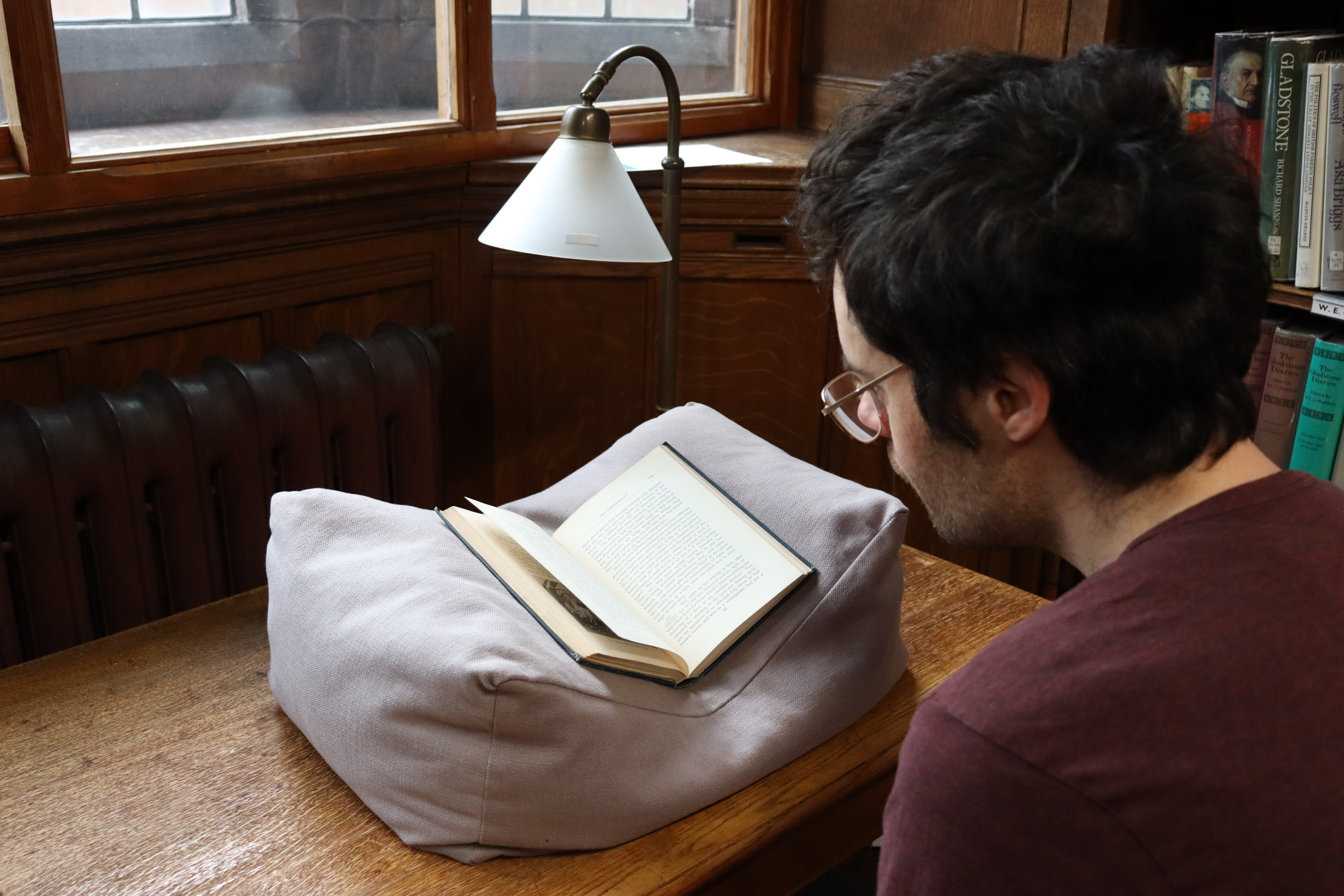There isn’t enough space here—anywhere—to explain the many, many things I love about Gladstone’s Library, so I’ll stick to books themselves.
In the past I’ve visited certain libraries which, while beautiful, feel like places where your presence was an intrusion. The oppressive hush made you feel like a splinter the place would soon work free from itself. That feeling extended to the books themselves—you felt afraid to touch them. Taking a volume from a shelf, opening it, inhaling its smell and contents was somehow taboo, even if the librarian had given you the nod.
But at Gladstone’s, all such fears are quickly dispelled. Everywhere you look are people at their desks, surrounded by stacks of books. Some parse the chapters quickly to get a sense of whether the contents might fit their needs, while others take copious notes from a single, engrossing passage. Others again read at random, seemingly happy to be immersed in whatever they have before them. Patrons creak the wooden floorboards, picking tomes like ripe fruit. It makes me happy to see the place still lives and breathes. The library was built to provide a place where people could come and study and make use of Gladstone’s vast library (with the tens of thousands more added in the interim), and 120 years on, it is still doing that. Unlike other places, it still fulfils that remit. It has resisted becoming a rarefied museum.
So I started using it too. The novel I’m working on is set in the middle-ages and, one day, while writing in one of the book-lined cubbyholes notching the interior balcony, I got stuck in a scene. The hinge of it rested on one of my characters saying something paticular. I knew, generally, what I needed his words to be… but the shape of them proved elusive. So I did what all writers do—I procrastinated. Emboldened to interact with the venerable, leather-bound books all around me, I pulled a random one off the shelf next to my head. It was collection of sermon fragments written by parish priests none of whom, when I Googled them (see: procrastination), returned any results. But as I flicked pages at random, a couple of lines caught my eye and I realised they were exactly what I wanted my character to say.
Suddenly the entire scene I’d been struggling with appeared in my mind, each contour and twist tastefully lit. For a while, I played around with having my character say different words which carried the same weight as this long-dead parish priest… but nothing I wrote contained the same spark, and I realised I should just put the priest’s words verbatim into my character’s mouth (properly credited of course). After all, they were responsible for bringing my scene to life, so it seemed like the fitting thing. Almost like that’s what the library wanted me to do.
(Glen James Brown working in the Reading Rooms)
The shelves had taken care of one question, and soon began to solve more. In my pre-Gladstone research, I’d come across scant references to a little-known 11th Century Saint. I had wanted to include him in my work in some way, but the internet contained little on the man. I’d resigned myself to making only a passing reference to him in my story, but during another day sat at a different desk, I looked to my left and there, two metres away, was a 400-page book on him. I read the whole thing—filled with the most glorious information I couldn’t find online—and now that Saint is a much more prominent figure in my novel. Again, it was if the library had put it there for me. This happened another three or four times.
I like the idea of the library as a sentient thing—something that can see inside into our skulls as we struggle with plot knots, school revision, whatever project we are bending our passions towards. And then it shifts itself about—subtly, it has over a century of practice—so the next time we glance at a certain shelf, the answers to our problems are right there, spine out. It is some Borgesian entity—a gigantic mind of paper, leather, mahogany that, sees us stretching our tiny human minds to the limits, and gives us a benign, grandparently-nudge in the right direction.
It has helped me immensely in my time here. The book I’ve been working on could not have existed in its current form without those other books that made themselves visible to me on certain shelves. They have enriched my novel and carried it in directions I’d never have dreamed. Without those books, my book would have not only been a different book… but a much poorer, less rich book.


